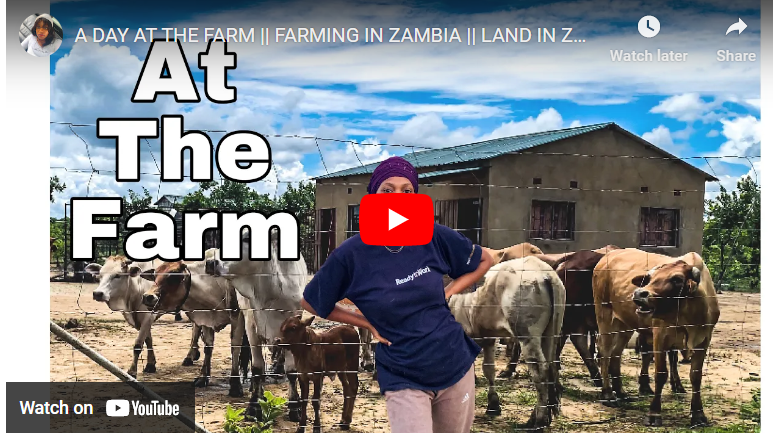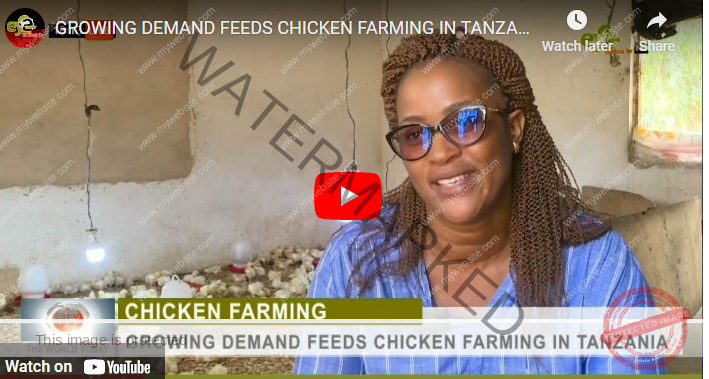As you step onto the lush, fertile lands of Zimbabwe, your gaze is drawn to the magnificent figures that reign over the agricultural realm. Meet the richest farmers in this bountiful nation, their status as guardians of the land reflected in their opulent lifestyles.
Nomaliso Musasiwa, Ben Freeth, Artwell Chorwadza, Terrence Maphosa, and John Muchenje are among the wealthiest farmers in Zimbabwe, known for their impressive agricultural success and substantial financial achievements in the industry. Their expertise and dedication have propelled them to the top, establishing them as prominent figures in Zimbabwe’s prosperous farming sector.
These agricultural tycoons have amassed fortunes through their unwavering dedication to cultivating the earth. From vast maize plantations to thriving tobacco estates, their agricultural empires stretch as far as the eye can see.
These visionary farmers have harnessed the potential of Zimbabwe’s soil, combining their shrewd business acumen with a deep understanding of the land, securing their place as the epitome of prosperity in the farming industry.
Richest Farmers in Zimbabwe
There are thousands of farmers in Zimbabwe either as crop farmers or poultry farmers. However, there are only a handful of them making the big bucks from this field.
So, to enlighten you, we have compiled the list of richest farmers in Zimbabwe providing you with all the information you need to know.
Read Also: Top 13 Richest Farmers in USA
#1. Nomaliso Musasiwa
Vegetable farmer
Nomaliso Musasiwa, the renowned vegetable farmer, holds the coveted position as one of the richest farmers in Zimbabwe.
With an unwavering passion for agriculture, Musasiwa has transformed the landscape of vegetable farming in the nation.
Their meticulous attention to detail and innovative farming techniques have allowed them to cultivate a vast empire of thriving vegetable crops.
Read Also: Top 5 Richest Farmers in UK
From vibrant fields of leafy greens to a rainbow of fresh produce, Musasiwa’s farms are a testament to their dedication and expertise.
Their commitment to sustainable practices and organic farming has not only yielded remarkable financial success but also earned them recognition as a pioneer in the industry.
With their visionary approach and entrepreneurial acumen, Nomaliso Musasiwa stands as a beacon of inspiration for aspiring farmers across Zimbabwe.
Read Also: Richest Farmers in England
#2. Ben Freeth
Ben Freeth, a name synonymous with success and resilience, stands as one of the richest farmers in Zimbabwe. As a tireless advocate for agricultural development, Freeth has transformed barren lands into thriving agricultural havens.
With a deep understanding of the land and a keen eye for opportunity, he has diversified his farming ventures, encompassing livestock, crops, and agribusiness.
Freeth’s unwavering commitment to sustainability and community empowerment has not only garnered financial success but also earned him widespread admiration.
Read Also: Top 5 Richest Farmers in the Philippines
His innovative farming techniques and dedication to uplifting local farmers have paved the way for a brighter future in Zimbabwe’s agricultural landscape.
Ben Freeth’s indomitable spirit and unwavering pursuit of excellence have established him as a role model for farmers nationwide.
#3. Artwell Chorwadza
Iron Beans and other Staple Crop Farmer
Artwell Chorwadza, an extraordinary figure in Zimbabwe’s agricultural realm, stands tall as one of the richest farmers in the nation.
With a keen focus on staple crops, particularly the highly nutritious Iron Beans, Chorwadza has revolutionized the farming landscape.
Read Also: Top 5 Richest Farmers In Ontario
His unwavering dedication to improving food security and combating malnutrition has not only brought him financial success but also garnered him widespread recognition as a visionary farmer.
Chorwadza’s meticulous farming practices, coupled with his innovative approaches to crop management and distribution, have elevated him to the status of a trailblazer in the industry.
Through his remarkable achievements, Artwell Chorwadza has become an inspiration for both aspiring farmers and advocates of sustainable agriculture in Zimbabwe.
#4. Terrence Maphosa
Maize and Poultry farmer
Terrence Maphosa, a trailblazer in the agricultural sector, stands proudly as one of the richest farmers in Zimbabwe.
With a strong focus on maize and poultry farming, Maphosa has established a formidable empire in the heart of the nation’s agricultural landscape.
Read Also: Top Richest Farmers in Florida
Through his unwavering commitment to excellence, he has transformed vast stretches of land into thriving maize plantations and state-of-the-art poultry farms.
Maphosa’s astute business acumen, coupled with his deep understanding of the industry, has catapulted him to the forefront of the farming community.
His dedication to sustainable practices, technological innovation, and providing high-quality produce has not only secured his financial success but also positioned him as a role model for aspiring farmers.
Terrence Maphosa’s visionary approach and relentless pursuit of agricultural excellence continue to shape the future of farming in Zimbabwe.
#5. John Muchenje
Vegetable farmer
John Muchenje, an exemplary figure in Zimbabwe’s farming landscape, proudly holds the title of one of the richest farmers in the country.
With a profound passion for vegetable farming, Muchenje has carved a remarkable path to success.
His extensive knowledge of crop cultivation, combined with his innovative farming techniques, has led to the creation of thriving vegetable farms that span across the countryside.
Muchenje’s commitment to quality and sustainable practices has garnered him a reputation for producing the freshest and most nutritious vegetables in the region.
Through his entrepreneurial spirit and dedication to excellence, John Muchenje has not only achieved financial prosperity but has also become a symbol of inspiration for aspiring farmers in Zimbabwe.
Farming Systems Used by these Richest Farmers
The richest farmers in Zimbabwe employ a diverse range of farming systems to maximize their agricultural output and profitability. These systems include:
- Integrated Crop-Livestock Systems: Many of these farmers have successfully integrated crop production with livestock rearing. By combining the cultivation of crops like maize, vegetables, or tobacco with livestock farming such as poultry, cattle, or pigs, they capitalize on the synergies between the two sectors, utilizing crop residues as animal feed and animal manure as fertilizer.
- Greenhouse Farming: Some wealthy farmers have embraced greenhouse farming, utilizing controlled environments to cultivate high-value crops throughout the year. This system allows for precise control of temperature, humidity, and irrigation, enabling the production of high-quality vegetables, herbs, and flowers regardless of external climatic conditions.
- Precision Agriculture: Utilizing modern technologies such as GPS, drones, and remote sensing, these farmers implement precision agriculture techniques to optimize their resource utilization. By precisely managing inputs like fertilizers, water, and pesticides, they minimize waste and increase productivity.
Successful Strategies of the Richest Farmers in Zimbabwe
The richest farmers in Zimbabwe have implemented several successful strategies that have contributed to their remarkable achievements:
- Market Research and Diversification: These farmers thoroughly research market demands and consumer trends, enabling them to make informed decisions about which crops to grow and how to market their produce effectively. They often diversify their farming operations to minimize risks and tap into multiple revenue streams.
- Technological Adoption: Recognizing the importance of technology, these farmers embrace modern agricultural practices and leverage advanced tools and equipment. They invest in irrigation systems, mechanized equipment, and efficient storage and processing facilities to streamline their operations and improve productivity.
- Knowledge and Skill Development: Continuous learning and skill enhancement play a crucial role in the success of these farmers. They attend training programs, workshops, and agricultural conferences to stay updated with the latest farming techniques, emerging trends, and best practices.
Factors that Contribute to Farming Success in Zimbabwe
Several factors contribute to the success of farming in Zimbabwe, particularly for the richest farmers:
- Access to Land: The availability of arable land plays a vital role in farming success. These wealthy farmers have secured sizable land holdings, allowing them to expand their operations and diversify their crops.
- Infrastructure and Logistics: Adequate infrastructure, including well-maintained roads, reliable transportation networks, and access to markets, facilitates the timely and efficient movement of agricultural produce, reducing post-harvest losses and ensuring profitability.
- Financial Resources: The richest farmers have access to substantial financial resources, enabling them to make capital investments in land, machinery, technology, and irrigation systems. This financial stability provides a solid foundation for their farming operations.
Challenges of Farming in Zimbabwe
Despite their success, the richest farmers in Zimbabwe face several challenges:
- Climate Change: Erratic rainfall patterns and prolonged droughts have significantly impacted agricultural productivity in Zimbabwe. Farmers must adapt to changing weather patterns and invest in climate-resilient farming techniques to mitigate the risks associated with climate change.
- Access to Finance: Limited access to affordable credit and financing options hampers the growth and expansion of farming operations. Farmers often struggle to obtain loans for purchasing inputs, equipment, and infrastructure upgrades.
- Land Tenure Issues: Land reform policies and unclear land tenure systems have created uncertainties for farmers, including disputes over land ownership and tenure security. These issues can impede long-term planning and investment in agricultural activities.
Lucrativeness of Farming in Zimbabwe
Farming in Zimbabwe can be lucrative, especially for the most successful farmers. Factors contributing to the lucrativeness include:
- Rich Agricultural Resources: Zimbabwe boasts fertile soils and favorable agro-climatic conditions that support the cultivation of a wide range of crops. The abundance of natural resources and biodiversity offer lucrative opportunities for high-value crop production.
- Export Market Potential: Zimbabwean farmers can tap into both local and international markets. With increasing demand for quality agricultural produce, exporting to neighboring countries and beyond can be highly profitable for farmers.
- Government Support: The government of Zimbabwe has implemented various programs and policies to support the agricultural sector. Initiatives like subsidized inputs, extension services, and market facilitation programs can provide financial and technical assistance to farmers, enhancing the profitability of farming ventures.
Most Profitable Farming in Zimbabwe
In Zimbabwe, some of the most profitable farming ventures include:
- Tobacco Farming: Zimbabwe is renowned for its high-quality tobacco production, which enjoys strong demand both domestically and internationally. Tobacco farming can be highly lucrative, with farmers benefiting from export opportunities and favorable prices.
- Horticulture and Vegetable Farming: The production of high-value horticultural crops such as flowers, fruits, and vegetables has shown significant potential for profitability. With a growing demand for fresh produce, both in local and export markets, farmers can fetch premium prices for their products.
- Poultry Farming: The poultry industry, including broiler meat and egg production, has experienced rapid growth in Zimbabwe. Poultry farming can be profitable due to the high demand for chicken meat and eggs, especially in urban areas.
Types of Farms in Zimbabwe
Zimbabwe’s agricultural sector encompasses various types of farms, including:
- Commercial Farms: These are large-scale farms that employ modern agricultural practices and technologies. Commercial farms often focus on cash crops, livestock production, or a combination of both.
- Smallholder Farms: Smallholder farmers play a crucial role in Zimbabwe’s agricultural landscape. They cultivate relatively smaller plots of land and engage in subsistence farming or produce crops for local markets.
- Agribusiness Enterprises: Some farms in Zimbabwe operate as agribusiness enterprises, encompassing multiple value chain activities. These farms may engage in primary production, processing, and marketing of agricultural products.
Zimbabwe Agriculture Collapse
Zimbabwe’s agricultural sector faced significant challenges in the past, leading to a collapse in agricultural productivity. The collapse can be attributed to factors such as:
- Land Reform Policies: Controversial land reform policies disrupted agricultural production by redistributing land from commercial farms to small-scale farmers, often without adequate support or resources for the new landholders.
- Economic Instability: Hyperinflation and economic downturns adversely affected the agricultural sector, leading to reduced investment, inadequate access to inputs, and declining productivity.
- Infrastructure Decay: Neglected infrastructure, including irrigation systems, roads, and storage facilities, hampered agricultural operations, resulting in post-harvest losses and limited market access.
Farming in Zimbabwe Videos
To access videos related to farming in Zimbabwe, you can explore online platforms such as YouTube, where various content creators, agricultural organizations, and farming channels share informative videos.
Search for keywords like “farming in Zimbabwe,” “agricultural practices in Zimbabwe,” or specific crop or livestock-related topics to find relevant videos.
Biggest Farm in Zimbabwe
The biggest farm in Zimbabwe is often debated due to changes in land ownership and tenure.
However, prior to land reforms, some notable large-scale commercial farms, such as Cold Comfort, Mazowe Citrus Estate, or Hippo Valley Estate, held significant agricultural land and operated on a large scale.
Zimbabwe Agriculture Production
Zimbabwe’s agriculture production encompasses a diverse range of crops, livestock, and horticultural products.
Key agricultural productions include maize, tobacco, cotton, sugarcane, citrus fruits, potatoes, tomatoes, beef, poultry, and dairy products.
The country’s agricultural output contributes significantly to food security, export earnings, and employment generation within the country.
Conclusion
The richest farmers in Zimbabwe stand as symbols of success and resilience in the agricultural sector. Through their unwavering commitment to the land, they have not only reaped abundant harvests but also built extraordinary fortunes. Their legacy serves as a testament to the remarkable potential of Zimbabwe’s farming industry and the indomitable spirit of those who nurture its fields.



